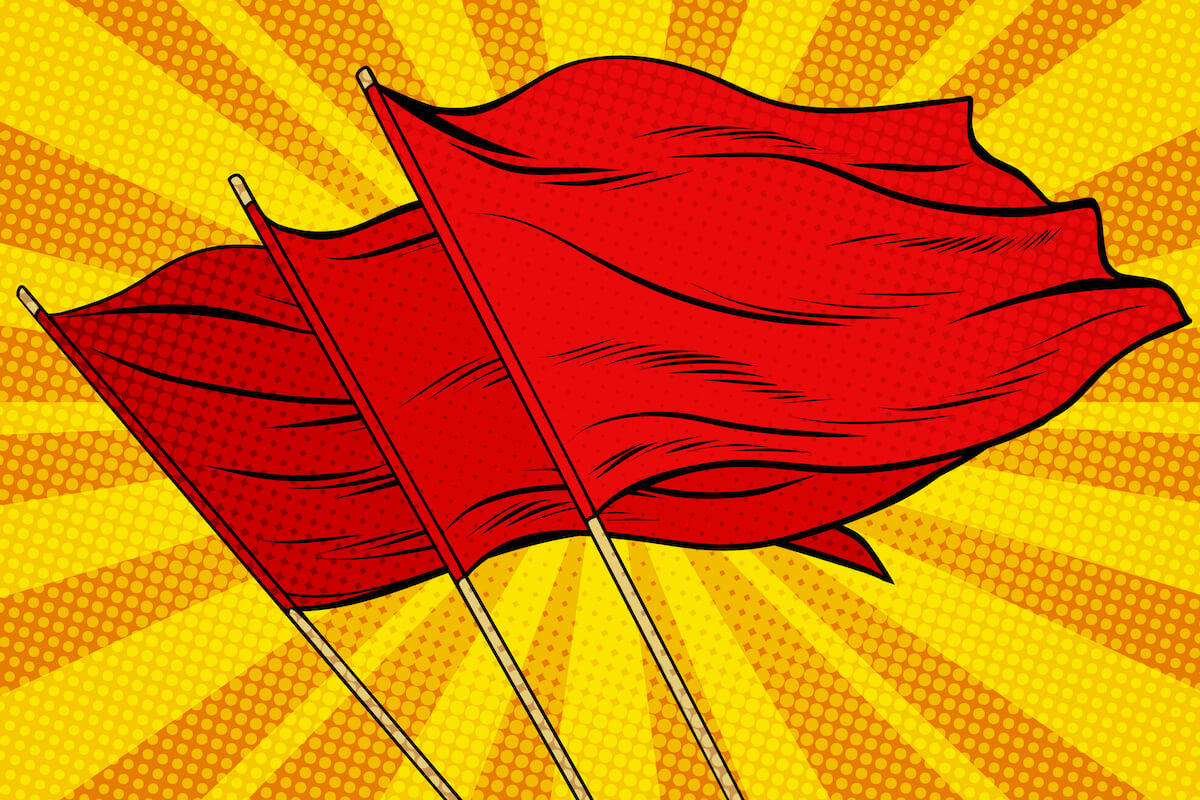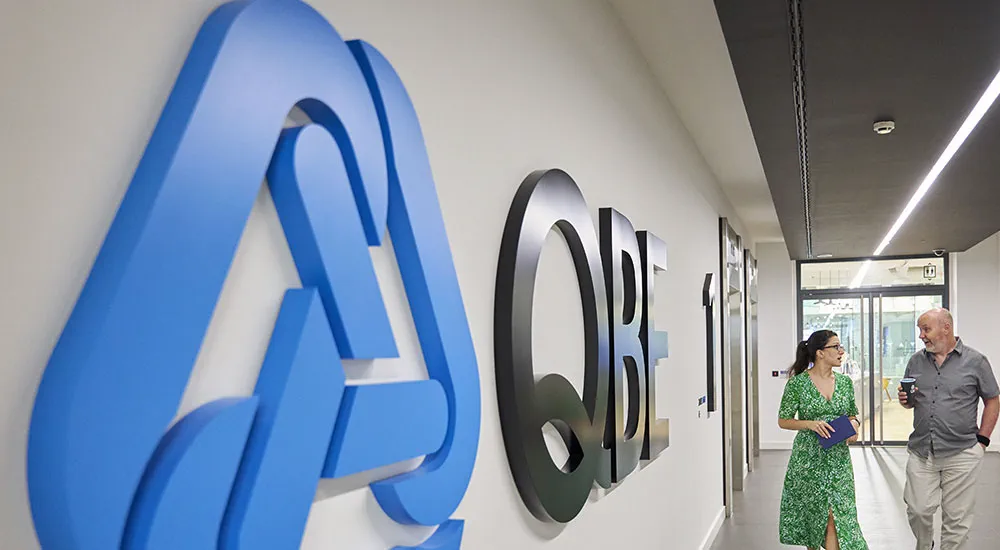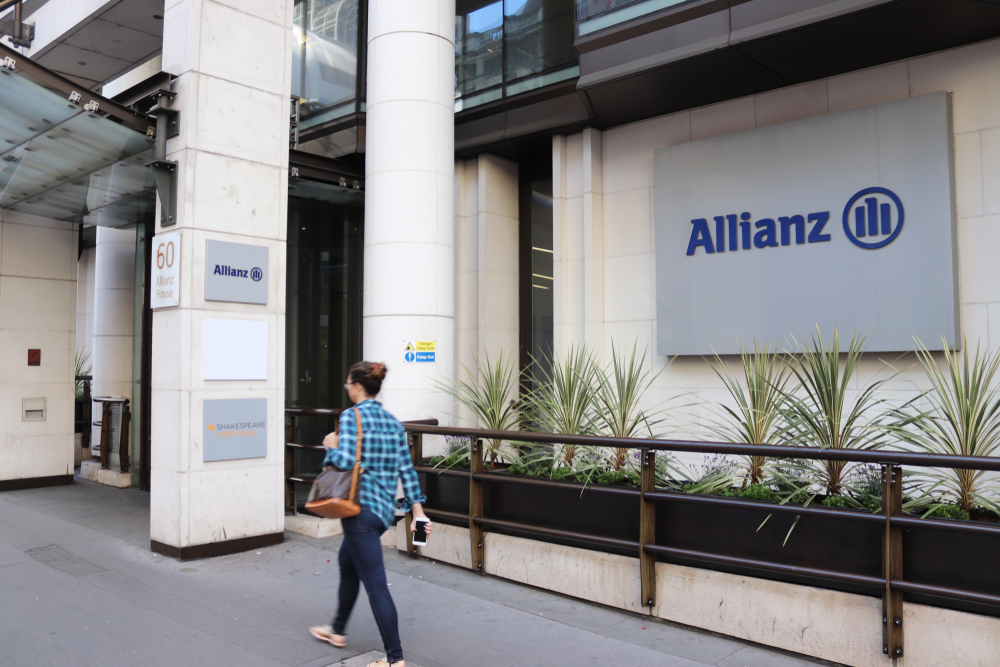Editor’s note: ImpactAlpha contributing editor Imogen Rose-Smith, a longtime senior writer for Institutional Investor, contributes a bi-weekly column on the policies, practices and strategies of the largest asset allocators, including pensions, foundations, and endowments. As Imogen says, she’s “tracking what investors do, not just what they say.”
ImpactAlpha, Oct. 12 – It’s been about enough time for Patagonia vests to go from cliche affectation of hedge fund bros to icon of a heralded new form of capitalism – and back again.
So let’s just pull on one thread of the fleece that may remain overlooked in the buckets of ink that have been spilled on Yvon Chouinard, Patagonia’s eccentric 83-year-old founder, who “gave away” to a trust his outdoor apparel company, valued at $3 billion.
“I don’t respect the stock market at all,” Chouinard told The New York Times’s David Gelles. He had no faith that as a public company, Patagonia, a pioneer of sustainable business practices and a proponent for climate action through political and philanthropic donations, would be able to advance its climate agenda.
“Once you’re public, you’ve lost control over the company, and you have to maximize profits for the shareholder, and then you become one of these irresponsible companies.”
Chouinard’s deep-seated distrust for the public markets got me thinking. Was he right? To have no respect for the ability of the public markets to encourage good corporate behavior? What does that mean for investors’ ability to encourage companies, in Patagonia-vest style, to do good while doing well?
Chouinard’s mission-focus, of course, makes him an outlier. Chouinard is a legend, who in the 1960s lived out of his car to climb in Yosemite and survived on five-cent cans of cat food (which, by the way, has more protein than dog food). In his own personal mythology, he never wanted to be a businessman, never mind a billionaire. He lucked into the whole thing.
Private parties
But Chouinard is not an outlier in his disdain for public markets. In the new millennium, more money is raised in private markets than in public markets nearly every year. Companies stay private longer than ever, and many private companies are larger in revenues (and influence) than public competitors. Entrepreneurs, and many investors, like the relief from reporting requirements that staying private affords.
To that, Chouinard is adding the ability to anchor a private company in a social mission in a way that a public company cannot be.
Impact investors, as it happens, have largely agreed. Most self-identified impact investors devote the bulk of their attention (if not their assets) to private deals where they can set the terms and wield influence. The working assumption is that traditional public markets are too open to negative influences and the short-term interests of profit seeking investors such as hedge fund managers.
The walled garden of the private markets and billionaire philanthropy may be exclusive and out of touch, but at least it can remain true to the cause of impact.
ESG, on the other hand, is a child of the public equity markets. The approach rests on the promise that, with transparency, measurement and incentives, a company’s environmental footprint (E) and social relations (S) can be managed (G) for both operational excellence and risk reduction.
The argument has been that doing good by society and by the planet will also benefit and return profits to shareholders. ESG looks inward and measures the performance of companies along various ESG metrics (energy consumption or employee diversity for example). Impact investing has historically measured the impact of businesses and their products on society and the economy.
Once seen as a Trojan horse for radicals, ESG approaches have become standard operating practice in the investment shops of many asset owners and asset managers. Institutional investors have largely embraced the idea that engaging with businesses delivers positive social and environmental solutions.
Sharks in the water
ESG notwithstanding, Chouinard’s remarks underscore the fact that many remain deeply skeptical of the ability of public companies to protect their missions. ESG is not a panacea to what ails our societies, and there are still plenty of sharks in the capital markets with reasons to make a company irresponsible.
Not least among them the hedge fund managers sitting in sub-zero trading rooms sporting Patagonia vests, as if it’s 2007 all over again.
The last few years have seen a vogue for ESG focused activist hedge fund managers, including Engine No. 1 and Jeff Ubben’s Inclusive Capital Partners. Even the Lord of Darkness himself, Paul Singer, founder and CIO of famed activist manager Elliot Management, has started singing from the ESG playbook. And who could forget about Carl Icahn and his pigs? (If that’s you, listen to our February podcast discussion.)
Yet, it’s clear that transitioning a public company toward sustainability can be an uphill challenge. Shareholders and Wall Street analysts still tend to prefer strong quarterly earnings and dividends over investments in enterprise value or greening the business.
Back in 2015, David Crane, then-CEO of energy company NRG, was forced to resign after pushing for changes that would make his business more green. Last year, Emmanuel Faber, CEO of the French food conglomerate Danone, met a similar fate after activist hedge fund managers pushed back against his plans to green the company’s supply chain.
Lest you think inventors have changed their stripes in our new ESG-friendly times, earlier this year Unilever, a darling of the ESG investing community under its pioneering former CEO Paul Polman, had to face down criticism from investors who accused it of going too far in pursuing its social agenda.
In May, the London-listed Dutch consumer conglomerate was forced to add activist investor Nelson Peltz to its board. Through his fund, Trian Fund Management, Peltz (who, amusingly enough, is father to Nicola Peltz, who recently wed Victoria and David Beckham’s son, sometimes photographer, sometimes chef Brooklyn), had taken a 1.5% stake in the business.
I once had a meeting in Trian’s office in Manhattan, the kind of place where the reception area was staffed by an ex-cop, with his feet up on the desk, eating a donut.
Peltz has said he is “supportive” of Unilever’s plans to green its business lines, and has in the past expressed positive views about ESG. But given Peltz’s reputation for a “laser-like” focus on cost-cutting, it’s hard not to feel a bit squeaky. Maybe it’s true that Peltz, or Icahn, or, for that matter, Singer, now have the warm and fuzzies for ESG. But I understand why someone like Chouinard might have doubts when the sharks are circling, even if they are dressed in sheep’s clothing.
Ice cream wars
Speaking of Unilever.
Two hippies-turned-millionaire businessmen who might be taking to heart Chouinard’s misgivings about the public markets right now are Ben Cohen and Jerry Greenfield.
With a baby boomer counterculture success story like Chouinard’s, Cohen and Greenfield made their Vermont ice cream company, Ben & Jerry’s, famous with Grateful Dead-inspired ice cream flavors such as Cherry Garcia and Phish Food.
Cohen and Greenfield sold their business to Unilever in 2000. The deal, valued at $326 million, was controversial at the time. How could Ben and Jerry, and their employees, keep their counterculture ethos and ethics while also doing good by shareholders? After months of intense negotiations, the company agreed to become a wholly owned subsidiary of Unilever, overseen by its board, with a second board on which Cohen and Greenfield would sit, to protect the values, and employees, of the company.
”Shareholders will be rewarded,” Cohen and Greenfield said in a statement shared with The New York Times at the time. ”Ben & Jerry’s employees will be protected; the current social mission of Ben & Jerry’s will be encouraged and well-funded, which will lead to improved performance in this area, and an opportunity has been offered for Ben & Jerry’s to contribute to Unilever’s social practices worldwide.”
And the structure seemed to work, at least as described in Cohen and Greenfield’s recent editorial in The Wall Street Journal. Early on in the partnership when there was a disagreement over the ingredients that were going into the ice cream, the business partners flew to London to meet with Polman.
“During our meeting, we presented him with a miniature statue of a goose,” the pair wrote. “We explained that if Mr. Polman followed the terms of the acquisition agreement, Ben & Jerry’s would continue to thrive and provide many golden eggs for Unilever. If he didn’t respect the terms, the goose would die.”
Unilever reversed its decision. “The goose survived.”
Now, however, all is not well, as you can probably imagine if these Vermont hippies are taking to the Journal’s editorial pages to air their grievances. The goose might be headed for the stock pot once again.
In 2021, the Ben & Jerry’s board decided, for ethical reasons, to stop selling ice cream in occupied Palestine territories. A year later, the Uneliver board overturned that decision. As a result the Ben & Jerry’s board is now suing Unilever in federal court, claiming that Unilever is violating the terms of that original agreement.
“Without the conditions in that agreement, we would never have sold to Unilever,” Cohen and Greenfield write. “The agreement laid out a new and unique governance structure between the two companies. Product quality, social mission and brand integrity decisions would go to Ben & Jerry’s independent board—and finance and operations would go to Unilever. Yet Unilever is now changing those terms. It’s claiming that since decisions regarding product quality, social mission and brand integrity can have operational and financial implications, the company can override and negate them.” Tellingly, they make the point that the old management, with which they struck the 2000 deal, have retired.
Polman retired in December of 2018. Can Unilever retain its ESG bona fides without him, especially when it comes to social issues?
“Absent the ability to pursue its social mission and do business consistent with its values, Ben & Jerry’s isn’t Ben & Jerry’s at all,” Cohen and Greenfield warn. “It’s just ice cream—or a dead goose.”
Not designed to save the planet
Maybe the Ben & Jerry’s dispute is what happens when founders try to have their ice cream cake and eat it, too. Critics accuse Cohen and Greenfield of cashing out by selling to Unilever in the first place. Far better to stay private, and protect those values and principals.
But from an ESG perspective, if social credentials are essential to Ben & Jerry’s brand value, then they should be protected. It should not need a special board to enforce those protections.
Businesses like Ben & Jerry’s or Patagonia face the problem that there is nothing inherently sustainable about their products. It’s about branding and marketing. There’s nothing sustainable about eating ice cream, or purchasing outdoor apparel. In fact, we should all probably do less of both (with apologies for my Cotopaxi addiction). Such companies are vulnerable in the public market, since their sustainable mission can be separated from the drivers of their profits.
Yet, if every billionaire represents a policy failure, the public markets at least represent a more democratic venue on which to fight for our values, and the future of the world, than billionaire and multi-millionaire philanthropy ever will be.
The significant imperfections of the capital markets are not reason to give up on ESG. But they are a reason to understand how encouraging publicly traded companies to do well by doing good is both less and more impactful than its supporters and critics would like to believe.
The problem that impact investing alone has is that, without ESG and the size that comes from the capital markets and large, institutional investors, we can not effect change at the scale required. Not everyone can put their $3 billion company into a trust and call it a day. There have to be more capital-minded solutions.
Perhaps we expect too much of ESG. In a recent article in the Harvard Business Review, “ESG Investing Isn’t Designed to Save the Planet,” Kenneth Pucker and Andrew King argue just that.
They point out ESG’s many shortcomings, including the fact that ESG ratings tend not to consider a company’s impact on the planet or communities. In order for ESG funds – and really we’re talking equity funds here – to make a difference they would have to prove “additionality,” something that is nearly impossible to demonstrate for a diversified fund in the public markets, even if it wanted to.
ESG investing can create the perception that capital markets alone can save the planet, they argue. That notion “perpetuates the fantasy of market-based voluntary action.” That myth, in turn, has helped spur the backlash against ESG.
Pucker and King aren’t saying that investors and businesses should not look at things like climate risk and social impact. Quite the opposite. They are saying we need to recognize the structural inadequacies of asset management – a business designed to make money for its investors and generate fees for itself – and to require more and better regulation around ESG disclosures and ratings, and to encourage investment in the clean energy transition. Investing in the public markets alone is not enough.
What’s good for the goose
Which gets to the real reason for Patagonia’s new trust structure. It’s not really about avoiding the public markets (whatever Chouinard might think of them), or at least it’s not only that. Rather, it’s about achieving a favorable tax treatment for its founder and his family (of which more below) and allowing Patagonia to keep contributing financially to the political cause of fighting climate change.
Holdfast Collective, the trust that is taking over Patagonia, is a 501(c)(4). Which means that, unlike a charitable foundation – a 501(c)(3) – it can make unlimited political contributions. As a result, the family can’t take the tax writeoff that they would have done if they had donated the company to a 501(c)(3), and they had to pay $17.5 million in taxes on the gift (although as other media outlets have pointed out, they do still get considerable tax benefits, including avoiding inheritance tax and any potential capital gains there would have been from selling the company.)
Explaining how Holdfast Collective will distribute the profits, Chouinard “said much of the focus will be on nature-based climate solutions such as preserving wild lands.” As a 501(c)(4), he said, Holdfast Collective will “build on Patagonia’s history of funding grassroots activists, but it could also lobby and donate to political campaigns.” Given that the whole point of a 501(c)(4) over a 501(c)(3) is to make political contributions, it seems like Patagonia will be doing a lot of the latter.
In other words Patagonia, now, is literally a business designed to save the planet. I have very mixed views about this.
On the one hand this sounds sort of good and, well, fun. I like the idea of those hedge fund bros in their Patagonia vests – and the company makes about $1 billion a year in revenue – funding the fight against climate change. I often bang on about how the left is too timid when it comes to fighting the disinformation and malfeasance on the right. And, of course, the oil and gas industry has spent fortunes lobbying against climate regulation and pushing climate denialism. So, let’s have at it.
On the other hand, for every good billionaire with a cause there’s at least one bad billionaire equally committed to political causes on the other side, and keen to not pay taxes. And what’s good for the goose is going to be even better for the gander.
Gelles alludes to this problem when he references Barre Seid, a Republican donor who put his company into charitable trust with the profits to be used for political and philanthropic purposes. “Seid took a different approach in giving 100% of his electronics company to a nonprofit organization,” Gelles writes, “reaping an enormous personal tax windfall as he made a $1.6 billion gift to fund conservative causes, including efforts to stop action on climate change.”
What’s to stop Rupert Murdoch from putting Fox into a trust to pursue his disinformation campaign from beyond the grave? Or Peter Thiel? Or whichever of the Koch brothers is still alive?
Chouinard told Gelles that his decision to put Patagonia into trust has put him at peace. “I feel a big relief that I’ve put my life in order,” he told Gelles.
But the idea of these zombie businesses wandering around doling out political checks to whatever pet causes their deceased billionaire founder championed has the makings of a dystopian nightmare that I wish we could all wake up from.
Imogen Rose-Smith is a contributing editor at ImpactAlpha. A longtime senior writer for Institutional Investor, she was most recently a fellow in the Office of the Chief Investment Officer of the University of California.
Catch up on all of Imogen’s Institutional Impact columns.











